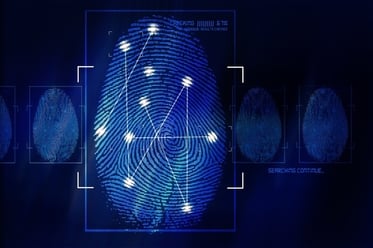
The use of biometrics in business has become more widespread and the reasons for using them rapidly increasing. While many businesses dismiss biometrics to the realm of government or security, the applications for biometrics extend far beyond those areas and provide benefits to businesses of all sizes and industries. Discover these top three uses of biometrics in business to determine whether they would be useful in your own company.
Security
The most common reason for the use of biometrics in business is security. The ability to stratify security settings using biometrics make it applicable to all industries. Areas like healthcare have used biometrics to their fullest degree and increased their patient's security while limiting liability in the process. Health information violations can cost a healthcare institution hundreds of thousands of dollars. To avoid fines and ensure patient confidentiality, many hospitals have created security groups based on biometrics. These groups give employees the information they need to perform their job without divulging extra information that may be used inappropriately. Employees like lab personnel or therapy aides may need a part of a patient's medical record, but not full access like a member of the nursing staff or doctor. This ability to stratify security settings with the use of biometrics in business can be implemented everywhere from sales to security.
Safety
One of the biggest hurdles today's businesses face is ensuring employee competency and safety. As more regulations and requirements are added to jobs, tracking that data and keeping it up to date is vital. One of the added bonuses to the use of biometrics in business is the ability to complete biometric profiles for each employee. Biometrics becomes a one-stop shop for issuing credentialing, keeping up to date with training, and tracking time logs. Biometrics are designed to create a comprehensive profile of the employee, not just a fingerprint or palm scan. By employing biometrics, businesses can more easily track employees’ time, usage of company information, and training and certification. This aids companies in complying with regulatory agencies and ensuring employee safety during working hours.
Time Loss Prevention
The use of biometrics in business isn't limited to safety and security. Many businesses have found biometrics useful in preventing time loss. Biometric time clocks rely on the individual's presence at their place of work rather than use of a pin code or employee number. Since buddy punching costs businesses up to five percent of gross payroll annually, ensuring that employees are physically present when they're on the clock is vital. An employee identification card can easily be handed off to another employee for an early arrival or late departure, but a fingerprint isn't so easy to leave behind. The use of biometrics in business eliminates these forms of time theft and ensures more accurate compliance with employee attendance policies.
The use of biometrics in business is rapidly becoming the norm rather than the outlier. For high-risk security fields to small manufacturing businesses, the benefits of implementing a biometric system are varied and vast while the cost and risk is low. If you're a business owner or decision maker, now is the time to implement the use of biometrics in your business to ensure better security, safety, and attendance.

